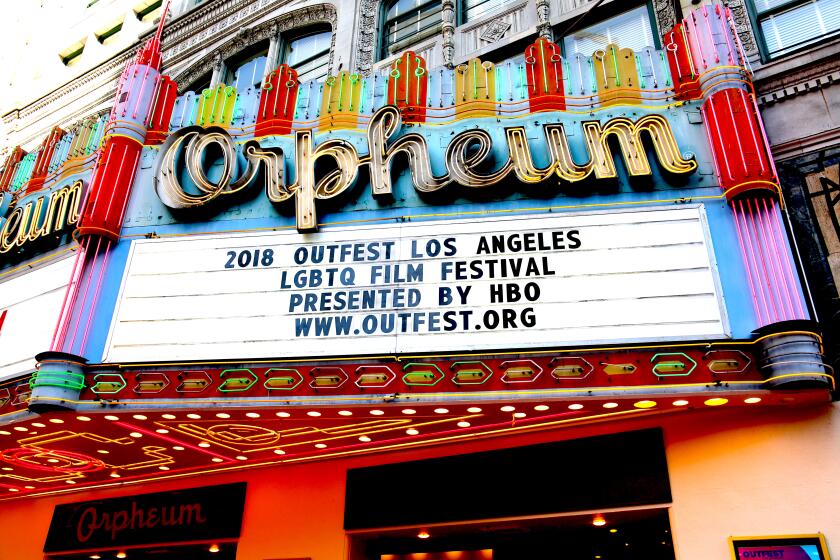The best movies of the 2019 Sundance Film Festival

- Share via
Reporting from Park City, Utah — With another Sundance in the books, Times film critics Kenneth Turan and Justin Chang sat down to discuss the awards, the deals and their favorite movies from the 2019 festival.
KENNETH TURAN: As exhaustive and exhausting as ever, the 2019 Sundance Film Festival now belongs to the ages. Prizes have been given to worthy films, with Chinonye Chukwu’s “Clemency,” starring a terrific Alfre Woodard as a prison warden, taking the U.S. dramatic grand jury prize, and Nanfu Wang and Jialing Zhang’s “One Child Nation,” about China’s draconian population-control measures, taking the equivalent doc prize.
Honors aside, it inevitably will take awhile for films to shake out in terms of what is a flash in the pan and what is forever. But that doesn’t stop us from thinking about what we’ve seen. So, overall, how did this year strike you?
JUSTIN CHANG: It’s not a bad year when major awards go to movies as good as “Clemency,” “One Child Nation” and Joanna Hogg’s “The Souvenir,” which took the grand jury prize in the World Cinema dramatic competition. It was especially gratifying, on the same night that the Directors Guild of America failed to recognize a single female filmmaker, to see these excellent female-directed works prevail. (I look forward to catching up with “Honeyland,” Tamara Kotevska and Ljubomir Stefanov’s study of a rural Macedonian beekeeper, which won top honors for international documentary.)
But I appreciate the note of caution in your question, especially since last year’s excellent Sundance — the one that gave us “Eighth Grade,” “Sorry to Bother You,” “Hale County This Morning, This Evening,” “Minding the Gap,” etc. — was prematurely dismissed by many as a disappointment. I’m not ready to say definitively how Sundance 2019 measures up yet, but my immediate instinct is to commend newly installed director of programming Kim Yutani on an excellent first edition.
Certainly the festival began on an exceptionally strong note, maybe its strongest, with Dan Reed’s “Leaving Neverland,” a vital, searing, four-hour documentary whose shocking allegations of sexual abuse against Michael Jackson have stirred no end of controversy. It will air on HBO over two nights in March. For all the other fine movies I’ve seen in the past 10 days, I still haven’t shaken that one off.
FULL COVERAGE: 2019 Sundance Film Festival »
TURAN: Totally agreed. For reasons obvious and not, “Neverland” was the doc everyone was talking about, which is interesting in and of itself for a film that was a late entrant into the festival and only showed once in Park City itself in a small theater at a seriously early hour. Sundance audiences are determined. Yet it’s important to note that what makes Sundance arguably this country’s premier documentary showcase is not the power of its best films but the overall quality of the docs it offers in its several showcases.
Just for openers, I want to name two wonderful films that were not high-profile items, starting with Kim Longinotto’s “Shooting the Mafia,” an intimate portrait of Letizia Battaglia, an exceptional woman whose photography of the chaos sown by the Mafia helped bring change to Sicily.
And then there was another film I almost didn’t go to, Garry Keane and Andrew McConnell’s “Gaza.” I feared a strident diatribe but what I got instead was a film of stirring visual beauty that gives a deeply empathetic portrait of individuals trying to maintain normal lives in the midst of extraordinary chaos.
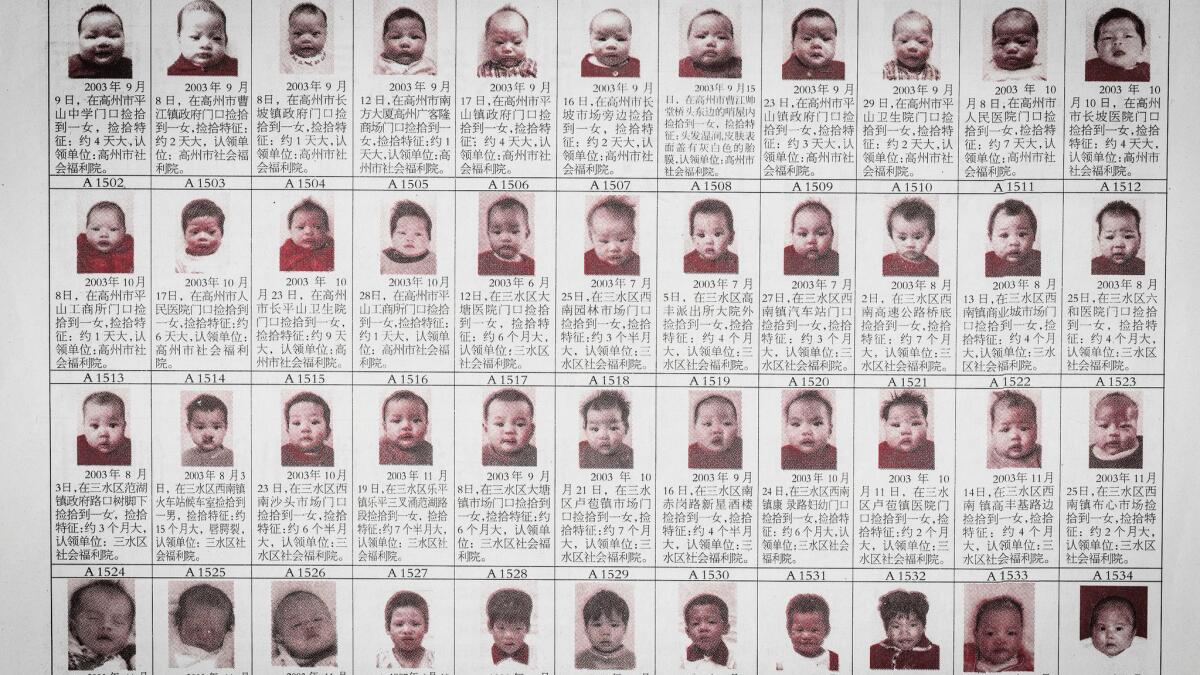
RELATED: ‘Clemency,’ ‘One Child Nation’ lead a diverse mix of Sundance Film Festival award winners »
CHANG: Indeed, my only disappointment in surveying this year’s characteristically strong crop of documentaries is that I didn’t manage to see more of them. Like you, I was especially glad I made time for “One Child Nation,” a sharp indictment of not only China’s now-defunct one-child policy but also the patriarchal thinking that has been ingrained in the country’s culture for centuries.
Elsewhere, as someone whose mom spent more than three decades working as a medical technologist, I eagerly devoured “The Inventor: Out for Blood in Silicon Valley,” Alex Gibney’s most unflattering portrait of Elizabeth Holmes and the Theranos scandal. It’s a pretty straightforward entry in the usual Gibney mold — solid research, slick visuals, damning commentary — but along with the recent Fyre Festival docs, it suggests that for pure cinematic outrage, fraudulence as a subject will never grow old.
I saw some very fine narrative titles as well, but what were some of your favorites?
TURAN: Actually, I thought the fiction films were stronger than I expected this year, with a real premium on well-made narratives that had genuine potential to interest audiences. Of course “Late Night,” written by and starring Mindy Kaling, led that particular pack, as its $13 million sale to Amazon, a Sundance record for U.S.-only distribution, testifies, but there were others.
For Bruce Springsteen fans, “Blinded by the Light,” the new film by “Bend It Like Beckham’s” Gurinder Chadha, blended Bollywood with the Boss to wonderful effect. Actor Chiwetel Ejiofor wrote, directed and starred in the exemplary “The Boy Who Harnessed the Wind,” based on a remarkable true African story. And though the Adam Driver-starring “The Report” got more publicity, potent work by Keira Knightley made the similarly whistleblower-focused “Official Secrets” at least as involving if not more so.
One Sundance tendency that got on my bad side this year was the way films like the above were disparagingly referred to as “crowd-pleasers” or “audience pictures.” If anyone thinks smart, engaging and entertaining films that do not insult their audience are so thick on the ground they can be viewed dismissively, they’re living in a different movie universe than I am.
RELATED: Mindy Kaling mines her TV past for big-screen breakout ‘Late Night’ »
CHANG: “Crowd-pleaser” may have slipped into my vocabulary once or twice this festival, but never as disparagement! I enjoyed the hell out of “Late Night,” and like a lot of festival-goers, I was charmed by Paul Downs Colaizzo’s “Brittany Runs a Marathon,” another movie that Amazon shelled out a lot for ($14 million) as part of its unprecedented $41 million Sundance shopping spree. Watching the great Jillian Bell tear into this honestly inspiring self-improvement narrative was almost (almost!) enough to make me dig my own running shoes out of the closet.
A film need not be relentlessly upbeat, of course, to please a crowd. Its popularity with the jury aside, the smart, somber death-row drama “Clemency” moved my audience to audible tears, as did “The Last Black Man in San Francisco,” an exquisite Bay Area ramble that won two major prizes, including one for Joe Talbot’s direction. Both these pictures are, among other things, meditations on black manhood and the expectations and stereotypes that society projects onto it.
You might say the same thing about “Luce,” Julius Onah’s slippery mystery about a high-school teenager (the remarkable Kelvin Harrison Jr.) who may not be the golden boy he’s made out to be, and also about “Native Son,” Rashid Johnson’s daring modernization of Richard Wright’s tough 1940 novel about systemic, racialized injustice.
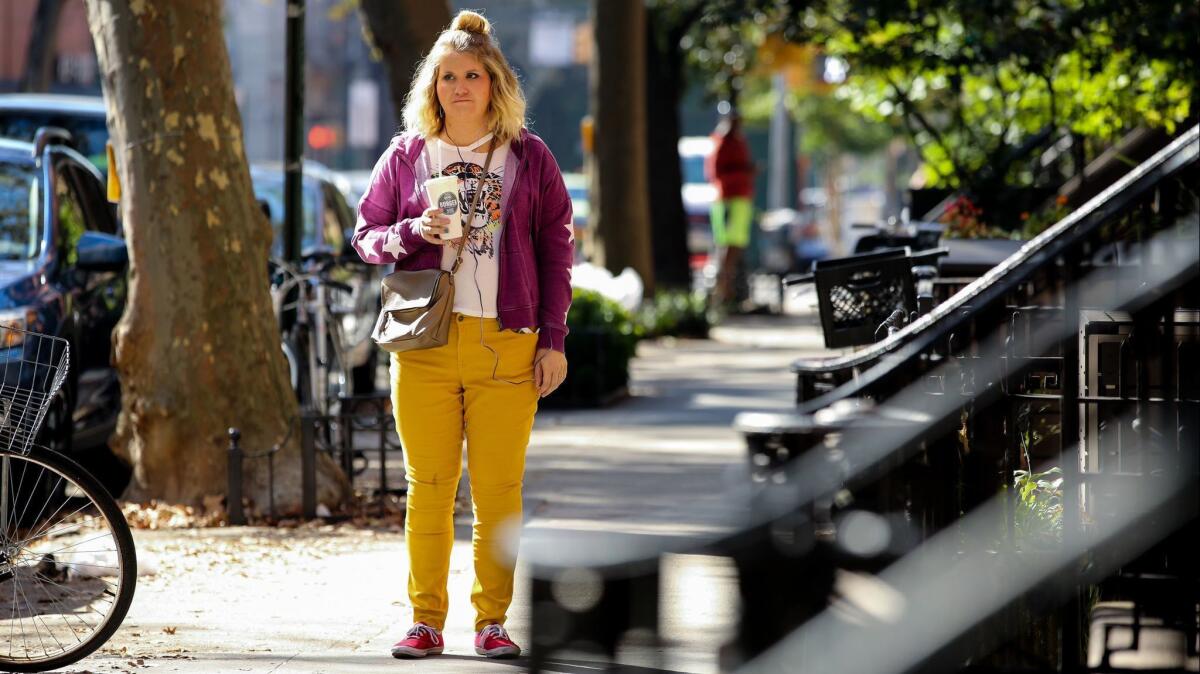
TURAN: I agree completely about “Brittany,” which won the U.S. drama audience award and was one of several Sundance films that I wouldn’t have thought I’d like that I ended up embracing. I was happy about Amazon embracing it too. In addition to getting their hands on quality product, Amazon’s wild spending spree seemed a response to the fuss over Netflix’s Oscar contender “Roma,” a way of telling the world, “We’re still here!”
I also want to mention two very different dramatic films that I was taken with: Ritesh Batra’s subtly moving “Photograph” and Mirrah Foulkes’ wild and crazy “Judy & Punch.” And I couldn’t forgive myself if I didn’t sneak in a mention of Alex Holmes’ marvelous documentary “Maiden.” I can’t wait to see it again when it hits screens this summer.
CHANG: Those last three titles you mentioned also bear out what a strong Sundance it was for international cinema — not something that can necessarily be said every year. My own favorites included Jennifer Kent’s nightmarish revenge western “The Nightingale,” a worthy if challenging follow-up to “The Babadook,” and Alejandro Landes’ “Monos,” which earned a special jury prize for its spellbinding portrait of child soldiers in elemental free-fall.
That jury, led by Jane Campion, justly gave its top prize to “The Souvenir,” which is so many things rolled into one: a love story, a film about filmmaking and a personal memoir of unusual delicacy and intimacy. Like so many other titles that made Sundance 2019 memorable, it’s a movie that I suspect our readers will be hearing much more about in the months to come.
FULL COVERAGE: 2019 Sundance Film Festival »
Sundance 2019 Film Festival: See the latest video interviews


Video: Behind the scenes of the L.A. Times 2019 Sundance photo/video studio

Video: The 2019 Sundance Film Festival Boomerang Supercut

Video: How do you make the most of a small budget?
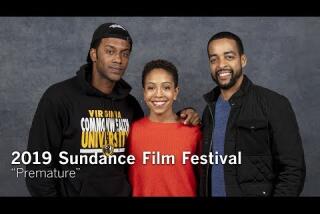
Video: Cast and filmmaker discuss trusting each other while shooting 'Premature'
3:12
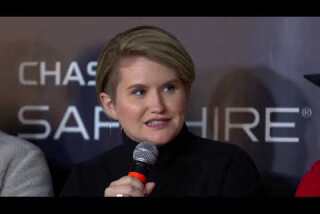
Video: 'Brittany Runs a Marathon' breaks conventions and stereotypes
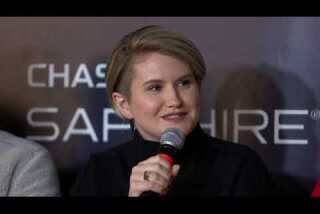
Video: Jillian Bell is tired of getting scripts about body image issues

Video: Jillian Bell lost 40 pounds for her role in 'Brittany Runs a Marathon'

Video: 'Brittany Runs a Marathon' actors break out of their sidekick roles
More to Read
Only good movies
Get the Indie Focus newsletter, Mark Olsen's weekly guide to the world of cinema.
You may occasionally receive promotional content from the Los Angeles Times.





